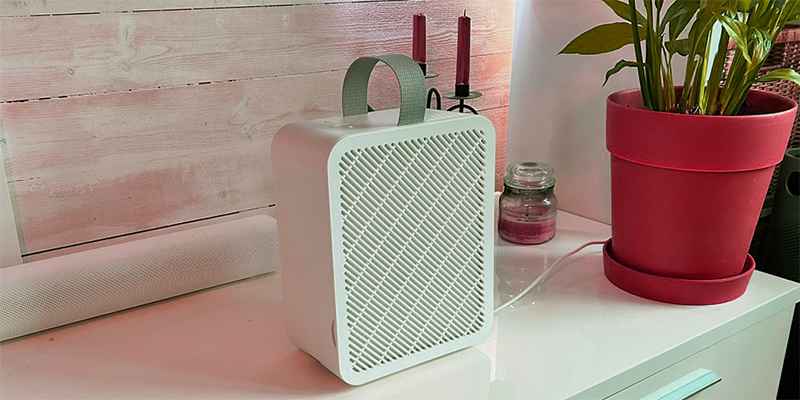Choosing the right air purifier is essential for maintaining a clean and healthy environment in your home. With numerous options available, selecting the best type can be challenging. In this article, we’ll explore different types of air purifiers, their benefits, and how to choose the right one for your needs.
Types of Air Purifiers
There are several types of air purifiers, each designed to tackle different air quality issues. These types can help you choose the best one for your needs.
HEPA Air Purifiers
HEPA (High-Efficiency Particulate Air) purifiers are renowned for their ability to capture 99.97% of particles as small as 0.3 microns. These purifiers are ideal for removing dust, pollen, mold spores, and other allergens from the air.
HEPA filters are highly effective and provide significant relief for allergy sufferers. However, they can be noisy and require regular filter changes to maintain optimal performance.
Activated Carbon Air Purifiers
Activated carbon air purifiers excel at removing odors, gases, and volatile organic compounds (VOCs). These purifiers use a bed of activated carbon to absorb harmful pollutants, making them perfect for homes with smokers or pets.
While these purifiers are great for odor removal, the filters need frequent replacement to remain effective. They are a valuable addition to any home needing improved air quality.
UV Air Purifiers
UV (Ultraviolet) air purifiers use ultraviolet light to kill bacteria, viruses, and other pathogens. These purifiers are particularly effective in sterilizing the air and preventing the spread of airborne illnesses.
UV air purifiers improve health by killing microorganisms but are limited to this function. They work best in conjunction with other types of air purifiers for comprehensive air cleaning.
Ionizer Air Purifiers
Ionizer air purifiers release negative ions that attach to positive ion particles, such as dust and allergens, causing them to fall to the ground. These purifiers are good for reducing airborne particles but require regular cleaning to remove the settled particles.
Ionizers are low maintenance but can create ozone as a byproduct, which may be harmful in high concentrations. Use them according to the manufacturer’s guidelines to ensure safety.
Ozone Air Purifiers
Ozone air purifiers generate ozone to eliminate odors and bacteria. However, these purifiers can be harmful if not used properly, as high levels of ozone can be dangerous to human health.
Ozone purifiers are effective for odor control but should be used with caution. Always follow the instructions carefully to avoid potential health risks.
Benefits of Using Air Purifiers
Air purifiers offer numerous benefits, including improved air quality and relief from allergies. They also help eliminate odors and reduce the risk of respiratory illnesses.
Improved Air Quality
Air purifiers significantly improve indoor air quality by removing pollutants, allergens, and harmful particles, making the air healthier to breathe.
Cleaner air can lead to better respiratory health and a more comfortable living environment. Regular use of an air purifier can reduce symptoms related to poor air quality.
Allergy Relief
For those suffering from allergies, air purifiers can provide substantial relief by capturing allergens like pollen, dust mites, and pet dander.
Using an air purifier can make a noticeable difference in allergy symptoms, making it easier to enjoy your home without constant discomfort.
Odor Elimination
Air purifiers with activated carbon filters are highly effective at eliminating odors from cooking, pets, and smoking, leaving your home smelling fresh.
These purifiers absorb odors rather than masking them, providing a more pleasant living space for you and your family.
Health Benefits
Using an air purifier can reduce the risk of respiratory illnesses by removing airborne bacteria and viruses, creating a safer living environment.
A cleaner environment can contribute to overall better health, reducing the likelihood of colds, flu, and other airborne illnesses.
Sleep Improvement
Cleaner air can lead to better sleep quality, as fewer pollutants in the air can reduce nighttime allergies and respiratory issues.
Better sleep quality contributes to overall well-being, making air purifiers a valuable addition to your bedroom.
FAQs
1. What is the best air purifier for allergies?
The best air purifier for allergies is a HEPA air purifier. These purifiers capture 99.97% of particles, including pollen, dust mites, and pet dander, providing significant relief for allergy sufferers.
2. Can air purifiers remove smoke odors?
Yes, air purifiers with activated carbon filters are highly effective at removing smoke odors. These filters absorb the smoke particles and odors, leaving your home smelling fresh.
3. How often should I replace the filters in my air purifier?
The frequency of filter replacement depends on the type of air purifier and its usage. HEPA filters typically need replacement every 6-12 months, while activated carbon filters may need replacement every 3-6 months.
4. Are ionizer air purifiers safe to use?
Ionizer air purifiers are generally safe but can produce ozone as a byproduct, which can be harmful in high concentrations. It’s essential to follow the manufacturer’s guidelines to ensure safe use.
5. Do air purifiers help with asthma?
Yes, air purifiers can help with asthma by removing airborne irritants such as dust, pollen, and pet dander. This can reduce asthma symptoms and improve overall respiratory health.
6. Can air purifiers remove mold spores?
HEPA air purifiers are effective at capturing mold spores, preventing them from circulating in the air. However, it’s essential to address the source of mold to prevent recurrence.
Conclusion
Choosing the right air purifier can significantly improve the air quality in your home, providing health benefits and enhancing overall well-being. Whether you need a purifier for allergy relief, odor elimination, or removing pathogens, understanding the different types available will help you make an informed decision. For expert advice and air duct cleaning services in Houston, TX, visit Reliable Air Duct Cleaning Houston.


